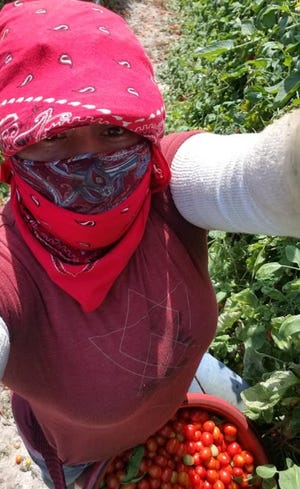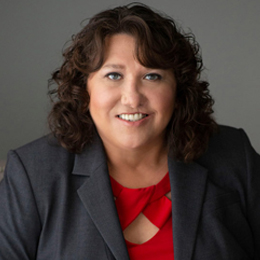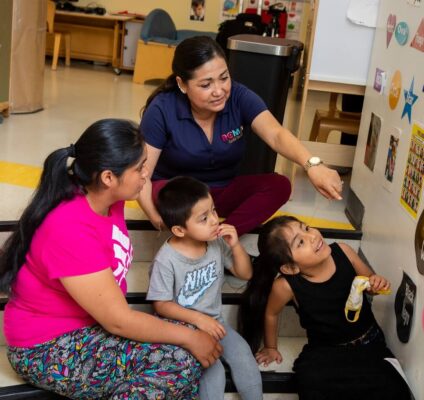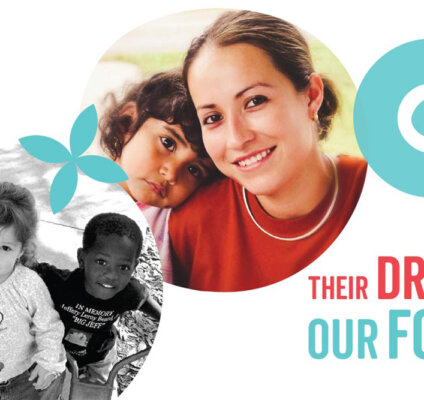Isabel Garcia, Special to the Naples Daily News -Published Jul. 18, 2021.
Since 1965, the goal of the Redlands Christian Migrant Association (RCMA) has been to serve migrant farmworkers and their families. We have continuously reached out to these families to enroll and keep their children in school. As your recent article titled “We had to work twice as hard’: How the pandemic magnified inequities for Florida’s migrant students” highlighted, the pandemic disrupted migrant students’ learning far more than for their counterparts.
Our main priority has always been to prepare these students for kindergarten and beyond. As demand for our innovative programming has grown, the RCMA School Board chose to expand our charter schools throughout the state. Students experience a rich, bi-cultural and Dual Language curriculum through 8th grade. RCMA’s curriculums in early childhood centers and in charter schools are reliable, research-based and culturally sensitive to meet the needs of our children. When they leave our programs, not only are they fully prepared for high school, but they are also fluent in verbal and written English and Spanish.
Equally important, we work with parents as partners to provide resources to further enhance many of the strengths and values these students already possess, such as integrity, commitment and family unity. Our student scholars have grit, which is what I personally feel prepares students for success later in life. And most all RCMA students grow up to be the first college graduates within the migrant families we serve. This is the real difference in what we do as RCMA for migrant farmworker families.
So, when Immokalee emerged as a COVID-19 hotspot, RCMA, government officials and community partners stepped up to the plate to support farmworkers throughout the state. We worked together to make sure that everyone had what they needed to be safe. But, as your article detailed, the children of Florida’s farmworkers needed even more support to successfully complete the school year and avoid the regression that would inevitably occur if students lost daily access to teachers and their peers.
Fifth-grade teacher Ulyslamis Echeverria-Ramos helps a student at RCMA Immokalee Community School in Immokalee during an exam in November. Nearly all the students returned to in-person learning for the school year, which Principal Zulaika Quintero says helps the school to keep tabs on students’ educational progress and emotional states. Alex Driehaus/ Naples Daily News/USA TODAY – FLORIDA NETWORK
RCMA teachers and administration addressed this crisis with ingenuity and determination. While the pandemic was in its infancy, before we even knew that shutdowns would occur, our charter school teams met to discuss the steps that needed to be taken. We purchased enough Zoom accounts to allow for every class at our two charter schools to continue and teachers altered lesson plans to optimize them for the Zoom platform.
Once lockdowns became unavoidable, students retained daily access to their lessons, their teachers and their friends. Classes like mindfulness and yoga, which are regular offerings at RCMA charter schools, became even more important as students adjusted to the Zoom classes. Because farmworkers were deemed “essential employees” many of our students took on the role of care provider for their younger siblings. In order to assure that these students could continue their lessons, teachers altered their schedules, sometimes teaching classes twice per day. All classes were recorded so if there was no way a student could attend a live class, at least they could watch it when their parents returned home and took over the care of the youngest children.
Despite the efforts listed above, it was still not enough. Lack of access to the internet is a significant problem among the families RCMA serves. Many families do not even have a computer at home. To meet this challenge, RCMA turned to its supporters. Corporations, foundations and individuals from all 21 counties where RCMA childcare centers and charter schools are located, contributed nearly $750,000. Most of the donation paid for basic needs of survival such as food, sanitation supplies, rent and utilities. We then combined the remaining amount with money from RCMA’s general operating fund to purchase tablets for every student (which they will take with them when they leave our programs) and internet hotspots (including service) for every family that needed one.

Yoly Lopez, a famer worker in Florida, wears a bandana provided ny Redlands Christian Migrant Association. The group recently distributed masks and bandanas to farm workers to help during the coronavirus outbreak. Photo courtesy of Yoly Lopez. Photo Provided By Yoly Lopez, Redlands Christian Migrant Association
Due to our position of trust within the farmworker community, government officials and community leaders turned to RCMA to lead outreach efforts to assure that parents knew how to keep their families safe and healthy. To address the dramatic increase in demand for food and cleaning supplies, our centers and schools held food and supply distributions at least once per week. We also provided rent and utility assistance, mobilized to find places for people without housing to quarantine and provided assistance for those in need of remote medical and mental healthcare. Additionally, RCMA staff helped families enroll in unemployment programs and provided information about other organizations that were providing assistance. Our teams safely visited the farmworkers right in their communities to ensure we reached those most in need.
Despite the myriad of challenges migrant students faced during COVID-19, nearly all RCMA students continued making academic progress and at the very least, they did not lose the progress that they made in the first part of the school year. This is truly a testament to our students’ resilience as well as to our teachers’ commitment. We are especially grateful for the encouragement and support our students received from donors, volunteers, media, business, governmental and community leaders, which showed these students that through education, they too can succeed.
Isabel Garcia is an accomplished early childhood educator and a leader within the National Migrant and Seasonal Head Start Association. She has served as Executive Director for Redlands Christian Migrant Association since 2018.
RCMA helping migrant farmworkers and their families succeed isabel garcia (news-press.com)




